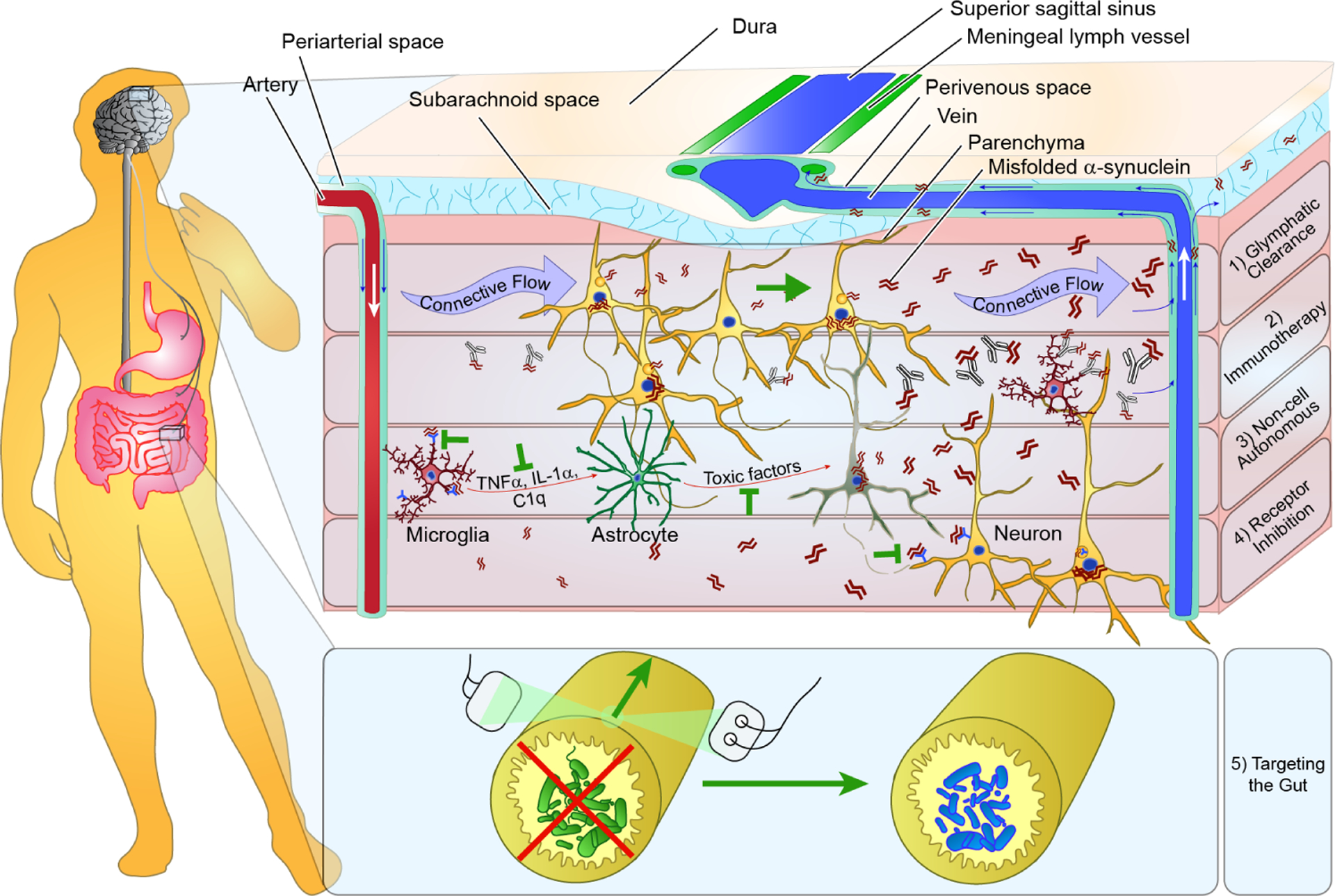FIGURE 3.

Therapeutic implications of alpha-synuclein transmission. The presence of extracellular pathogenic alpha-synuclein species has profound implications for how PD can be treated. This schematic drawing displays several of the therapeutic approaches that are possible to directly address alpha-synuclein transmission. A hypothetical patient is shown with both brain and gut treatments outlined. (1) The recent elucidation of a glymphatic pathway which clears metabolites through connective flow between periarterial and perivenous space presents the possibility of simply enhancing clearance of released alpha-synuclein. This alpha-synuclein would then enter the CSF and potentially meningeal lymph vessels. (2) Immunotherapy targeting alpha-synuclein would exclusively target extracellular species and thereby enhance their degradation through microglia or enhance their clearance into the CSF. (3) Previous work has shown that misfolded alpha-synuclein itself or some factor released by neurons can activate microglia which signal astrocytes and induce a neurotoxic phenotype. Blocking alpha-synuclein binding to microglia, microglial signaling to astrocytes or astrocyte release of neurotoxic factors are all potential therapeutic strategies. (4) Some studies have indicated that extracellular alpha-synuclein is taken up in a receptor-dependent manner and that blockade of binding to the receptor can reduce alpha-synuclein uptake and improve neuron health. (5) PD patients have elevated rates of constipation and deleterious microbiota population. Treatment of constipation via chemical or electrical stimulation or repopulation of intestines with healthy microbiota are treatments which may not only alleviate the GI symptoms experience by PD patients, but also neurological symptoms.
